The Well-Tempered Ear
This Sunday at 4 p.m., the Salon Piano Series debuts an online recital by pianist Kangwoo Jin. He plays music by Scarlatti, Beethoven, Liszt and Schumann. It is up until May 9
Leave a Comment
PLEASE HELP THE EAR. IF YOU LIKE A CERTAIN BLOG POST, SPREAD THE WORD. FORWARD A LINK TO IT OR, SHARE IT or TAG IT (not just “Like” it) ON FACEBOOK. Performers can use the extra exposure to draw potential audience members to an event. And you might even attract new readers and subscribers to the blog.
By Jacob Stockinger
This Sunday afternoon at 4 p.m. CDT, the Salon Piano Series, hosted by Farley’s House of Pianos, will debut an online concert by pianist Kangwoo Jin (below, in a photo by Andy Manis).
The concert, which was recorded at Luther Memorial Church, costs $10 and will be available online through May 9.
The program is:
Scarlatti – Sonatas in D minor and D Major, K. 213 and 214 (ca. 1756-1757)
Beethoven – Sonata in C-sharp minor, Op. 27, No. 2, “Moonlight” (1801)
Liszt – Transcriptions for solo piano of the songs “Widmung” (Dedication) by Robert Schumann and “Litanei” (Litany) by Franz Schubert
Schumann – Symphonic Etudes, Op.13 (1830)
Bishop – Home, Sweet Home
Tickets are only available online at eventbrite.com. Service fees apply. Complete program and concert information is at salonpianoseries.org
PROGRAM NOTES
Jin has written the following program notes for The Ear:
“As a musician, I am always eager to share music with the public. I am very excited to be able to reach out to the audience with this unprecedented Salon Piano Series Virtual Concert.
“I believe music soothes our mental health in difficult times regardless of age, gender or race. I very much hope my performance will contribute to this collective healing we feel through music.
“I wanted to include three different styles, as I usually do for recitals. This time I have Baroque, Classical and Romantic music.
“I chose one of the most famous Beethoven sonatas in order to celebrate his 250th birth year (2020), which I did not have a chance to mark last year.
“This piece is popular with the title of “Moonlight,” which Beethoven (below) never intended. Five years after his death, the German critic Ludwig Rellstab used the word “Moonlight” in order to describe the first movement. But it was really inspired by the funeral march in Mozart’s opera “Don Giovanni.” I try to bring out the tragic color of the first movement. (You can hear Jin play the exciting final movement of the sonata in the YouTube video at the bottom.)
“I also wanted to play the virtuosic masterpiece “Symphonic Etudes,” Op. 13, by Robert Schumann (below), including the beautiful posthumous variations 4 and 5.
I find this piece special in the sense that Schumann intended to make this piece “symphonic.” He created multiple layers of voices in various ways through each etude and created orchestral sounds. This polyphonic writing with multiple layers and a thick texture is what makes this piece difficult to play.
“I also specifically wanted to include one of the piano transcriptions by Franz Liszt (below) of Schubert’s Litanei auf das Fest Aller Seelen (Litany for the Feast of All Souls), D. 343.
“Schubert (below) used the poem “Litany” by Johann Jacobi (1740-1814). It is written for comforting the deceased. Robert Capell, the author of the book “Schubert’s Songs” (1929), said about this lied: There was never a truer or more touching expression of simple devotion and consoled grief … “The music rises from a pure well of affection and humility.”
“I would like to dedicate this piece to all the people who suffered from Covid 19.”
BACKGROUND
Here is a link to Kangwoo Jin’s impressive website where you can see many photos, learn about his extensive career as a teacher and hear many samples of his playing: https://www.pianistkangwoojin.com
Praised for his “refined tone quality with powerful energy” (Chosun Daily Newspaper), Jin (below, in a photo by Steve Apps for the Wisconsin State Journal) concertizes nationally and internationally, including performances in Germany, Italy, China, Indonesia and South Korea.
He gave his debut concert at the Sejong Arts Center in Seoul, South Korea, sponsored by the Chosun Daily Newspaper. He has given live performances on Wisconsin Public Radio and WORT 89.9 FM.
Jin appears frequently as a guest artist at music festivals, universities and various concert series. Recent invitations include UW-River Falls, Texas A&M University-Corpus Christi, and Tongji University in Shanghai. Kawai Pianos USA has also invited him as a guest artist at the annual Piano Technicians Guild Convention and Technical Institute in Florida.
Jin completed the Bachelor of Music degree at Hanyang University in South Korea, then earned his Performer Diploma and Master’s of Music at Indiana University, where he worked as an associate instructor.
He is the recipient of the J. Battista Scholarship for performance excellence at Indiana University and received the Collins Distinguished Fellowship for his doctoral studies, completed last year, at the University of Wisconsin-Madison, where he studied piano with Christopher Taylor and piano pedagogy with Jessica Johnson.
Tags: #AmericanPlayersTheatre, #ArtsCenter, #ArtSong, #BachelorofMusic, #BaroqueEra, #BaroqueMusic, #BeethovenYear, #BeijingChina, #BlogPost, #BlogPosting, #ChosunDailyNewspaper, #ChristianChurch, #ChristopherTaylor, #Classicalera, #ClassicalMusician, #CoronavirusPandemic, #CorpusChristi, #COVID-19, #DifficultTime, #DoctoralStudies, #DomenicoScarlatti, #DonGiovanni, #FacebookPost, #FacebookPosting, #Farley'sHouseofPianos, #FeastofAllSouls, #FranzLiszt, #FranzSchubert, #FuneralMarch, #GuestArtist, #HanyangUniversity, #HomeWebsite, #IndianaUniversity, #JacobStockinger, #JohannJacobi, #KangwooJin, #KawaiPianos, #LivePerformance, #LudwigVanBeethoven, #LutherMemorialChurch, #MajorKey, #MeadWitterSchoolofMusic, #MentalHealth, #MinorKey, #MoonlightSonata, #MusicCritic, #Musicfaculty, #MusicProfessor, #OnlineConcert, #OperaMusic, #PerformerDiploma, #PianoTechnician, #PolyphonicMusic, #ProgramNotes, #RobertSchumann, #RomanticEra, #RomanticMusic, #SalonPIanoSeries, #SchubertLieder, #SeoulSouthKorea, #ServiceFee, #ShanghaiChina, #SouthKorea, #SouthKorean, #SteveApps, #Sundayafternoon, #SymphonicEtudes, #TexasA&M, #TheEar, #TheUW, #Tongjiniversity, #UniversityofWisconsin-Madison, #UW-RiverFalls, #VirtualConcert, #VocalMusic, #WisconsinPublicRadio, #WisconsinStateJournal, #WolfgangAmadeusMozart, #YouTubevideo, affection, afternoon, age, April, art song, Arts, arts center, audience, auhtor, available, Bachelor of Music, Baroque, Baroque music, beautiful, Beethoven, Beethoven Year, birth, Bishop, blog, Blog post, blog posting, Book, China, Chosun Daily Newspaper, Christian, Christian church, Christopher Taylor, church, Classical, Classical era, Classical music, classicalmusic, collective, Collins, color, comfort, complete, composer, Concert, concertize, console, contribute, convention, coronavirus, coronavirus pandemic, Corpus Christi, cost, create, dead, death, deceased, dedicate, dedication, degree, different, difficult, difficult time, diploma, doctoral studies, doctorate, Domenico Scarlatti, Don Giovanni, Early music, energy, era, etude, excited, exciting, expression, Facebook, Facebook post, Facebook posting, Farley's House of Pianos, feast, Feast of All Souls, fee, festival, final, Florida, forward, Franz Liszt, Franz Schubert, funeral march, gender, German, Germany, grief, guest artist, guild, Hanyang University, healing, hear, Home, home website, hope, host, humiity, imformation, impressive, Indiana University, Indonesia, instructor, intend, internationally, Italy, Jacob Stockinger, Johann Jacobi, Johann Sebastian Bach, Kangwoo Jin, Kawai, Kawai PIanos, Korea, layer, layers, lied, like, link, link'share, Liszt, litany, live performance, Ludwig van Beethoven, Luther, Luther Memorial Church, Madison, major key, masterpiece, May, Mead Witter School of Music, Mental health, minor key, Moonlight Sonata, movement, Mozart, multipile, multiple, Music, music critic, music faculty, music professor, Musician, nationally, Newspaper, online, opera, Orchestra, orchestral, pandemic, People, Performer Diploma, photo, photos, Pianist, Piano, piano technician, piece, play, playing, poem, Poetry, polyphonic, polyphony, popular, post, posthumous, posting, powerful, professor, program, program notes, Protestant, public, race, Radio, reach, recital, Robert Schumann, Romantic, Romantic music, Salon Piano Series, sample, Scarlatti, scholarship, Schubert, sense, Seoul, service, service fee, Shanghai, share, simple, Singing, Sonata, song, soothe, soul, Sound, South Korea, special, sponsor, Steve Apps, study, style, suffer, Sunday, Sweet Home, SweetHome, Symphonic Etudes, symphony, tag, Teacher, teaching, Texas A&M, texture, The Ear, theme and variations, thick, ticket, times, tone, Tongji University, touching, tragedy, Tragic, transcription, true, United States, universities, university, University of Wisconsin-Madison School of Music, University of Wisconsin–Madison, unprecedented, USA, UW, UW-Madison, UW-River Falls, variation, virtual, virtuosic, vocal music, voice, Website, Wisconsin, wisconsin public radio, Wisconsin State Journal, Wolfgang Amadeus Mozart, WORT, WORT-FM 89.9, WPR, write, YouTube
The eighth annual UW Schubertiade is this Sunday afternoon. It features a FREE online retrospective of the past seven years plus a new four-hand piano performance
Leave a Comment
PLEASE HELP THE EAR. IF YOU LIKE A CERTAIN BLOG POST, SPREAD THE WORD. FORWARD A LINK TO IT OR, SHARE IT or TAG IT (not just “Like” it) ON FACEBOOK. Performers can use the extra exposure to draw potential audience members to an event. And you might even attract new readers and subscribers to the blog.
By Jacob Stockinger
The University of Wisconsin has posted the following announcement:
For the eighth consecutive year, the University of Wisconsin-Madison’s Mead Witter School of Music will present its annual Schubertiade — a special concert celebrating the music of Franz Schubert (below).
Traditionally these concerts have been held around the composer’s birthday. This year’s concert will in fact occur on his birthday — this Sunday, Jan. 31, at 3-4:30 p.m. CST. The pre-recorded premiere is at: https://youtu.be/7sshhKiFPAg
You can also use the link to prepare for the concert before or during the concert. You will find the program with song titles, the original German texts and English translation, and biographies of the performers by simply clicking on “SHOW MORE” on the YouTube website and follow the links to PDFs.
BECAUSE THERE ARE NO COPYRIGHT ISSUES, ACCORDING TO UW OFFICIALS, THE POST SHOULD BE UP AND AVAILABLE INDEFINITELY AFTER ITS PREMIERE.
As in past years, founders and performers Martha Fischer (below left), professor of piano and head of the collaborative piano program at UW-Madison, and her husband Bill Lutes (below right), an independent piano teacher, and UW emeritus artist-in-residence, will host the program.
These concerts have been presented in the sprit of the first Schubertiades (below, in a painting by Julius Schmid) that took place during the composer’s lifetime (1797-1828) in the homes of his friends and fellow artists, poets and fans.
These were social as well as musical occasions with Schubert himself presiding at the piano, giving his audience a chance to hear his latest songs, piano duets and chamber music, as well as pieces that had already become favorites.
This year’s Schubertiade will be different in response to the restrictions imposed by the Covid-19 pandemic. It will be an online look back — or Rückblick — at past concerts, with songs chosen from performances that have been preserved in the audio and video archive.
The featured performers will include faculty members, students and alumni from the Mead Witter School of Music, along with special guests.
In addition, pianists Fischer and Lutes will give a “new” performance recorded for this occasion of the great Fantasie in F minor for piano duet. (In the YouTube video at the bottom, you can hear that work, performed by Dutch brothers Lucas and Arthur Jussen and recorded live in Seoul, South Korea.)
The songs have been chosen to reflect themes that were not only relevant to Schubert and his circle, but also to all of us in the midst of this challenging time: hope for a brighter future; the need for connection with others; remembrance of happier times; and the consolation to be found in nature.
Schubert left a vast and precious legacy of beauty — an enormous output of music that he composed in his short lifetime.
In a sense, each time his music is performed and heard, it is a journey from the past to our own time, the sounds speaking to us today as vividly and consolingly as they did when they were created 200 years ago.
Performers
Martha Fischer and Bill Lutes, pianists
Alumni:
Jamie-Rose Guarrine, soprano (below, in a photo by Peter Konerko)
Emily Birsan, soprano
Michael Roemer, baritone
Jennifer D’Agostino, soprano
Daniel O’Dea, tenor
Wesley Dunnagan, tenor
Sarah Brailey (alumna and current DMA student)
Sara Guttenberg
Guests:
Marie McManama, soprano
Cheryl Bensman-Rowe, mezzo-soprano
Faculty:
Mimmi Fulmer, soprano
Paul Rowe, baritone (below)
Julia Rottmayer, soprano
Staff
David Alcorn, videographer, editor, etc.
Katrin Talbot, images for audio only tracks
Tags: #ArcticCircle, #ArthurJussen, #ArtSong, #AustrianComposer, #BassBaritone, #BillLutes, #BlogPost, #BlogPosting, #CentralTime, #ChamberMusic, #CherylBensman-Rowe, #CollaborativePianist, #CollaborativePIano, #CoronavirusPandemic, #COVID-19, #DanielO'Dea, #DavidAlcorn, #EmilyBirsan, #EnglishTranslation, #FacebookPost, #FacebookPosting, #FranzSchubert, #GuestArtist, #husband-and-wife, #JacobStockinger, #Jamie-RoseGuarrine, #JenniferD'Agostino, #JuliaRottmayer, #JussenBrothers, #KatrinTalbot, #LiveMusic, #LiveRecording, #LookBack, #LucasJussen, #MarthaFischer, #MeadWitterSchoolofMusic, #Mezzo-sopranoSinger, #MichaelRoemer, #MimmiFulmer, #MusicProfessor, #OnlineConcert, #PaulRowe, #SaraGuttenberg, #SarahBrailey, #SeoulSouthKorea, #SopranoSinger, #SouthEastAsia, #SouthKorea, #SpecialGuest, #Sundayafternoon, #TenorSinger, #TheEar, #TheNetherlands, #TheUW, #UniversityofWisconsin-Madison, #UWSchubertiade, #VirtualConcert, #VocalMusic, #WesleyDunnagan, #Wife-and-Husband, #YouTubeChannel, #YouTubevideo, alumni, announcement, archive, art song, Arthur Jussen, artist, artist-in-residence, Arts, Asia, asian, audience, Audio, Austria, bass, bass-baritone, before, Bill Lutes, bio, biography, birthday, blog, brighter, celebrate, Central Time, challenging, Chamber music, Cheryl Bensman Rowe, chosen, circle, Classical music, collaborative, composer, Concert, connections, consolation, copyright, coronavirus, Daniel O'Dea, David Alcorn, different, duet, Dutch, editor, emeritus, Emily Birsan, English, Europe, European, Facebook, Facebook post, Facebook posting, fans, Fantasie, fantasy, favorite, forward, found, founder, Franz Schubert, friends, future, German, Germany, good-natured, great, guest artists, happier, Home, hope, host, images, indefinitely, independent, issue, Jacob Stockinger, Jamie-Rose Guarrine, Jennifer D'Agostino, Julia Rottmayer, Jussen, Jussen brothers, Katrin Talbot, Korea, lieder, lifetime, like, link, live music, Live Recording, look back, Lucas Jussen, Madison, Martha Fischer, Mead Witter School of Music, Mezzo-soprano, Michael Roemer, Mimmi Fulmer, Music, music professor, nature, occasion, occur, online, original, other, painting, pandemic, past, Paul Rowe, performance, performer, photographer, photographs, Pianist, Piano, piano duets, pieces, poets, post, postih, pre-recorded, premiere, prepare, present, preserved, professor, program, reflect, remembrance, response, restrictions, retrospective, Sara Guttenberg, Sarah Brailey, Schubert, Schubertiade, Seoul, share, sing, singers, Singing, social, song, songs, soprano, South Korea, Southeast Asia, special, special guest, spirit, students, Sunday afternoon, tag, Teacher, tenor, text, The Ear, the Netherlands, theme, time, trabslatio, tradition, United States, University of Wisconsin-Madison School of Music, University of Wisconsin–Madison, UW, UW-Madison, video, Vienna, virtual, vocal music, Website, Wesley Dunnagan, Wisconsin, year, YouTube
Classical music: Today is the Winter Solstice. It’s a good time to listen to Schubert’s “Winterreise” (Winter Journey) — this year in English translation
2 Comments
PLEASE HELP THE EAR. IF YOU LIKE A CERTAIN BLOG POST, SPREAD THE WORD. FORWARD A LINK TO IT OR, SHARE IT or TAG IT (not just “Like” it) ON FACEBOOK. Performers can use the extra exposure to draw potential audience members to an event. And you might even attract new readers and subscribers to the blog.
By Jacob Stockinger
Winter starts today – Saturday, Dec. 21, 2019 – when the Winter Solstice arrives tonight at 10:19 p.m.
That means tonight — the longest night of the year — we turn the corner. The days start getting longer and the nights shorter.
It is also the day when The Ear likes to listen to the best winter music ever written: the cycle of 24 songs called “Winterreise” (Winter Journey) by Franz Schubert (1797-1828).
Over the years, The Ear has heard many fine versions. Among his favorite singers are Ian Bostridge, Dietrich Fischer-Dieskau, Matthias Goerner and Thomas Quasthoff.
Next year, you can probably expect to see a new release of the performance this past week by mezzo-soprano Joyce DiDonato and the pianist-conductor Yannick Nézet-Séguin.
But this year, he is listening – even as he writes – to a 2018 version by the critically acclaimed British baritone Roderick Williams (below top) with pianist Christopher Glynn (below bottom) on the Signum Classics record label.
The real and unusual appeal is that all the songs are sung in English — not the original German.
And The Ear finds it very appealing not to have to read translations but instead to sit back and listen directly to the meaning of the stories in the songs — all sung with excellent diction — in the austere, subtle and outstanding translation by theater director and writer Jeremy Sams (below).
It makes The Ear want to hear more Lieder or art songs sung in English translation — both live and recorded — just as he likes the translation, used by the Metropolitan Opera, done by the late American poet J.D. “Sandy” McClatchy of Mozart’s opera “The Magic Flute”
Try it and see what you think.
Here is the first song on YouTube, where the audio proceeds through the remainder of the 70-minute cycle after the end of each song.
Enjoy. And let us know what you think of the English translation:
Tags: #ArtSong, #AustrianComposer, #BaritoneSinger, #BlogPost, #BlogPosting, #ChamberMusic, #ChristopherGlynn, #CollaborativePianist, #CriticallyAcclaimed, #DietrichFischerDieskau, #EnglishTranslation, #FacebookPost, #FacebookPosting, #FranzSchubert, #IanBostridge, #J.D.McClatchy, #JeremySams, #JoyceDiDonato, #LiveMusic, #MatthiasGoerner, #MetropolitanOpera, #Mezzo-sopranoSinger, #OriginalEnding, #PianoAccompaniment, #PianoAccompanist, #RecordLabel, #RoderickWilliams, #SaturdayNight, #SchubertLieder, #SignumClassics, #SongCycle, #TheEar, #TheMagicFlute, #ThomasQuasthoff, #ViennaAustria, #VocalMusic, #WinterJourney, #WinterSolstice, #WolfgangAmadeusMozart, #YannickNezet-Seguin, #YouTubevideo, American, art song, Arts, austere, Austria, baritone, blog, British, Chamber music, Christopher Glynn, Classical music, Compact Disc, composer, Concert, conductor, corner, critically acclaimed, day, diction, Dietrich Fischer-Dieskau, director, English, excellent, Facebook, forward, Franz Schubert, German, good, hear, Ian Bostridge, Jacob Stockinger, Jeremy Sams, Joyce DiDonato, label, lieder, like, link, listen, live, live music, Madison, Metropolitan Opera, Mezzo-soprano, minute, Mozart, Music, new, night, opera, original, performance, Pianist, Piano, poet, record, recording, release, rhyme, Roderick Willliams, Saturday, Schubert, Schubert Lieder, share, Signum Classics, sing, singer, Singing, solstice, song, song cycle, start, subtle, sung, tag, The Ear, The Magic Flute, theater, theatre, think, Thomas Quasthoff, time, today, translation, turn, unusual, version, Vienna, vocal music, winter, Winter Journey, winter solstice, Wolfgang Amadeus Mozart, write, Yannick Nézet-Séguin, years, YouTube
Classical music: Madison native and virtuoso trumpeter Ansel Norris has made it to the final round of the 16th International Tchaikovsky Competition. You can hear him perform live on Thursday morning or in replay
2 Comments
IF YOU LIKE A CERTAIN BLOG POST, PLEASE SPREAD THE WORD. FORWARD A LINK TO IT OR, SHARE IT or TAG IT (not just “Like” it) ON FACEBOOK. Performers can use the extra exposure to draw potential audience members to an event. And you might even attract new readers and subscribers to the blog.
A REMINDER and CORRECTION: American pianist Kenneth Broberg, who performed last season in Madison on the Salon Piano Series at Farley’s House of Pianos, will be the last finalist – not the second-to-last – in the final concerto round of the 16th International Tchaikovsky Competition. The pianist from China that was to play after him played yesterday instead.
Broberg will play the “Rhapsody on a Theme of Paganini” by Sergei Rachmaninoff and the Piano Concerto No. 1 in B-flat minor, Op. 23, by Tchaikovsky. You can watch his performance live still on Thursday morning at 11:45 a.m. by going to https://tch16.medici.tv/en/ and clicking on PIANO LIVE or REPLAY after the performance.
By Jacob Stockinger
This news came to The Ear late or he would have passed along more information much earlier.
Ansel Norris (below), a 26-year-old Madison native and virtuoso trumpeter, has made it as one of the nine finalists — the contest started with 47 contestants in trombone, French horn, trumpet and tuba — in the first-ever Brass Competition at the 16th International Tchaikovsky Competition.
You can hear Norris perform live on Thursday morning at 7:45 a.m. via live-streaming or afterwards via replay. Just go to https://tch16.medici.tv/en/
Then click on BRASS and choose WATCH or REPLAY.
You can also listen to his earlier performances.
Here is a link to his performance in the first round, when he played a concerto by Franz Joseph Haydn plus works by Allen Vizzutti and Georges Enescu:
https://tch16.medici.tv/en/replay/first-round-with-ansel-norris/
And here is a link to his performance in the semi-final round, where he played concertos by Johann Friedrich Fasch and Vladimir Peskin — you can hear a much younger Norris play the first movement with piano in the YouTube video at the bottom — as well as a solo competition piece by Théo Charlier:
https://tch16.medici.tv/en/replay/semi-final-with-ansel-norris/#filter?instrument=brass
His performance in the finals, with an orchestra in St. Petersburg instead of Moscow, will take place on Thursday, June 27, at 7:45 a.m.
He will play Lensky’s aria “Where, Where Have You Gone?” from the opera “Eugene Onegin” by Tchaikovsky and the Trumpet Concerto by Rodion Shchedrin. Playing opera arias and art songs on the trumpet is a Norris specialty.
Norris, a graduate of Northwestern University who was also a member of the well-known New World Symphony in Miami, studied with John Aley, University of Wisconsin-Madison Emeritus Professor and Principal Trumpet of the Madison Symphony Orchestra, and played for many years in the Wisconsin Youth Symphony Orchestras.
Norris is the son of Katherine Esposito, the concert manager and publicity coordinator at the UW-Madison’s Mead Witter School of Music.
Here is a link to the more complete and current biography posted by the Tchaikovsky Competition:
https://tch16.medici.tv/en/competitors/ansel-norris/
Tags: #AllenVizzutti, #AnselNorris, #ArtSong, #BaroqueMusic, #BlogPost, #BlogPosting, #BrassMusic, #EmeritusProfessor, #EugeneOnegin, #FacebookPost, #FacebookPosting, #Farley'sHouseofPianos, #FranzJosephHaydn, #FrenchHorn, #GeorgesEnescu, #InternationalTchaikovskyCompetition, #JohannFriedrichFasch, #JohnAley, #KatherineEsposito, #KennethBroberg, #LiveStreaming, #MadisonSymphonyOrchestra, #MeadWitterSchoolofMusic, #MiamiFlorida, #MoscowRussia, #NewWorldSymphony, #NorthwesternUniversity, #OperaAria, #PeterIlyichTchaikovsky, #PianoConcerto, #PrincipalTrumpet, #RhapsodyonaThemeofPaganini, #RodionShchedrin, #SaintPetersburg, #SalonPIanoSeries, #Semi-finals, #SergeiRachmaninoff, #SergeiRachmaninov, #TheoCharlier, #TrumpetConcerto, #TrumpetMusic, #TubaMusic, #UniversityofWisconsin-Madison, #VladimirPeskin, #VocalMusic, #WisconsinYouthSymphonyOrchestras, #YouTubevideo, Allen Vizzutti, America, American, Ansel Norris, aria, art song, Arts, audience, Baroque, biography, blog, brass, China, Chinese, Classical music, complete, composer, Concert, concerto, contest, contestant, correction, current, Early music, emeritus professor, Enescu, Eugene Onegin, Facebook, Farley's House of Pianos, finalist, finals, first-ever, forward, Franz Joseph Haydn, French, French horn, graduate, Horn, information, International Tchaikovsky Competition, Jacob Stockinger, Johann Friedrich Fasch, John Aley, Katherine Esposito, Kenneth Broberg, last, lieder, like, link, listen, live, live music, live streaming, Madison, Madison Symphony Orchestra, manager, Mead Witter School of Music, medici.tv, Miami, morning, Moscow, movement, Music, native, New World Symphony, news, Northwestern University, opera, Orchestra, Pianist, Piano, play, post, posting, professor, publicity, Rachmaninoff, Rachmaninov, reader, reminder, replay, Rhapsody on a Theme of Paganini, Rodin Shchedrin, Russia, Russian, Saint Petersburg, Salon Piano Series, Season, semi-final, semi-finalist, share, solo, song, specialty, St. Petersburg, streaming, subscriber, tag, Tchaikovsky, Theo Charlier, Thursday, Trombone, Trumpet, Tuba, United States, University of Wisconsin-Madison School of Music, University of Wisconsin–Madison, UW-Madison, virtuoso, Vladimir Peskin, vocal music, watch, Wisconsin, Wisconsin Youth Symphony Orchestras, word, WYSO, yesterday, young, YouTube
Classical music: Milwaukee’s PianoArts festival turns 20 this year, and Madison musicians will take part in this year’s festival this weekend
Leave a Comment
IF YOU LIKE A CERTAIN BLOG POST, PLEASE SPREAD THE WORD. FORWARD A LINK TO IT OR, SHARE IT or TAG IT (not just “Like” it) ON FACEBOOK. Performers can use the extra exposure to draw potential audience members to an event.
By Jacob Stockinger
The Ear has received the following announcement to post:
The 2019 PianoArts 20th anniversary festival, “Concerts with Personality,” will showcase pianists with actors, singers, dancers and chamber music ensembles this coming Friday through Sunday, June 14-16, at the Wisconsin Conservatory of Music and at Vogel Hall of the Marcus Performing Arts Center.
Among the artists performing in the festival are Madison-based Martha Fischer and Christopher Taylor.
Also performing is Madison’s Sophia Jiang (below top), a 12-year-old winner of the Milwaukee Symphony Orchestra Youth Piano Competition and the Varshavski-Shapiro Duo (below bottom). Both Stanislava Varshavski and Diana Shapiro received their doctorates at the University of Wisconsin-Madison’s Mead Witter School of Music, studying with Martha Fischer.
UW-Madison Professor Martha Fischer (below), who teaches collaborative piano, will present a pre-concert lecture, “Singing Keys,” that explores the special relationships between singers and pianists — in art song, opera and musical theater — on Saturday night, June 15, at 7 p.m. at the Wisconsin Conservatory of Music, 1584 North Prospect Avenue, in Milwaukee. At 8 p.m., she will be joined by singers from opera and musical theater.
Christopher Taylor (below), a Van Cliburn competition bronze medalist who also teaches at the UW-Madison, will bring the festival to a dazzling close when he performs Franz Liszt’s solo piano transcription of Ludwig van Beethoven’s popular and iconic Fifth Symphony on Sunday night, June 16, at 8 p.m. in Vogel Hall, 929 North Street, Milwaukee. (You can hear the opening of the Liszt-Beethoven transcription, with a fascinating keyboard diagrammatic, in the YouTube video at the bottom.)
Details, tickets and more information are at www.PianoArts.org
Tags: #ArtSong, #BlogPost, #BlogPosting, #ChamberMusic, #ChristopherTaylor, #CollaborativePIano, #ConcertoCompetition, #DianaShapiro, #FacebookPost, #FacebookPosting, #FifthSymphony, #FranzLiszt, #GraduateStudent, #LudwigVanBeethoven, #MarcusPerformingArtsCenter, #MarthaFischer, #MeadWitterSchoolofMusic, #MilwaukeeSymphonyOrchestra, #MilwaukeeWisconsin, #MusicalTheater, #MusicaTheatre, #OperaMusic, #PianoArts, #PianoTranscription, #SophiaJiang, #StanislavaVarshavski, #UniversityofWisconsin-Madison, #VanCliburn, #VanCliburnInternationalPianoCompetition, #VogelHall, #WisconsinConservatoryofMusic, #WomenPerformers, #YouTubevideo, act, Actor, anniversary, art song, artist, Arts, audience, Beethoven, blog, bronze, bronze medalist, Chamber music, Christopher Taylor, Classical music, collaborative piano, composer, Concert, concerto competition, dance, dancer, diagrammatic, Diana Shapiro, doctorate, ensemble, event, Facebook, fascinating, festival, Fifth Symphony, forward, Franz Liszt, Friday, graduate student, iconic, information, Jacob Stockinger, Keyboard, keys, lecture, lieder, like, link, Ludwig van Beethoven, Madison, magic, magical, Marcus Performing Arts Center, Martha Fischer, Mead Witter School of Music, medal, Milwaukee, Milwaukee Symphony Orchestra, Music, Musical theater, musical theatre, night, opera, performer, Pianist, Piano, popular, relationship, Saturday, share, showcase, singer, Singing, solo, Sophia Jiang, Stanislava Varshavski, study, Sunday, symphony, tag, ticket, transcription, United States, University of Wisconsin-Madison School of Music, University of Wisconsin–Madison, UW-Madison, Van Cliburn, Van Cliburn International Piano Competition, Varshavski Shapiro Piano Duo, Varshavski-Shapiro, Vogel Hall, Wisconsin, Wisconsin Conservatory of Music, word, Youth, YouTube
Classical music: Irish pianist John O’Conor charms and excels in solo works by Haydn, Schubert, Beethoven and John Field. Ancora String Quartet plays Nielsen and Debussy Friday night.
2 Comments
ALERT: The Ancora String Quartet will close out its 17th season with a performance this Friday night at 7:30 p.m. in St. Andrew’s Episcopal Church, 1833 Regent Street. The program features the String Quartet No. 4 in F Major, Op. 44, by Danish composer Carl Nielsen and the String Quartet in G Minor, Op. 10, by Claude Debussy. Tickets are available at the door and are $15, $12 for seniors, $5 for children. A reception follows the concert. For more information, go to: https://www.ancoraquartet.com
By Jacob Stockinger
Here is a special posting, a review written by frequent guest critic and writer for this blog, John W. Barker. Barker (below) is an emeritus professor of Medieval history at the University of Wisconsin-Madison. He also is a well-known classical music critic who writes for Isthmusand the American Record Guide, and who hosts an early music show once a month on Sunday morning on WORT FM 89.9 FM. For years, he served on the Board of Advisors for the Madison Early Music Festival and frequently gives pre-concert lectures in Madison.
By John W. Barker
Lovers of piano music were given a special treat this past weekend — a double-header, allowing access to two different dimensions of one of the important pianists of our time.
John O’Conor (below), the Irish pianist, appeared on Friday evening with the Wisconsin Chamber Orchestra (WCO), presenting a stimulating performance of the Piano Concerto No. 3 by Ludwig van Beethoven.
Then, the following evening, at the Salon Piano Series at Farley’s House of Pianos, O’Conor gave a solo recital that showed the more personalized aspects of his art.
O’Conor concentrates particularly on the early Romantics in both his performing and recording activities, and from such concentrations was the recital program derived.
He began it with a reach back to an early favorite, Franz Joseph Haydn, in the Sonata No. 32 in B minor. In this work from 1776 O’Conor could find hints of the Romantic spirit to come — in a composer usually more identified with High Classicism.
The pianist was more fully in his own comfort zone, however, with the four Impromptus that make up the Op. 90 (D. 899) by Franz Schubert.
Dating from 1827, the composer’s last year, these are simply marvelous gems, and they made me realize that part of their delightfulness is what differentiates them from Schubert’s larger-scale piano works (sonatas,a fantasy, etc.).
The latter correspond to his efforts at music of grand scope and structure, as in the string quartets and symphonies, whereas the shorter piano pieces correspond to Schubert’s Lieder, or art songs, in their greater directness and intimacy. O’Conor played them with conviction and affection.
After the intermission came music by two composers with whom O’Conor has his most-established affinity. He has been the outstanding and crucial champion in the revival of interest in the piano music — both concertos and the pace-setting nocturnes — by John Field (1782-1837, below), the Irish pianist and composer who is recognized now as an important forerunner to Chopin.
Three of Field’s nocturnes (Nos. 5, 6, and 18) were presented, the last a kind of picture of party life in old Russia — where Field spent his later years — ending at the tolling of midday chimes. (You can hear John O’Conor play the lyrical and lullaby-like Nocturne No. 6 in the YouTube video at the bottom.)
Beethoven’s music is O’Conor’s other speciality. He has recorded all of the sonatas and the concertos, among other things. For this program, he performed the Sonata No. 14 in C-sharp minor (1801), a work nowadays cursed by the nickname given its first movement, “Moonlight.” He reminded us that the other two movements are the more fascinating and important ones.
As an encore, he suggested the John Field connection with one of Chopin’s own nocturnes.
Before each half of the program, the pianist gave his own comments, on both personal and analytical matters, and laced with his delightful Irish charm.
O’Conor performed on the amazing 1906 Chickering concert grand piano that Tim Farley has so lovingly restored. The post-recital conversation I had with O’Conor suggested that he had had too little time to adjust to the very remarkable individualities of the instrument. We may hope that he will return to Madison to fill out that acquaintance.
And we hope for more examples of the fruitful cooperation between the WCO and Farley’s in jointly bringing so fine a performer as this to the Madison scene.
Tags: #AmericanRecordGuide, #AncoraStringQuartet, #ArtSong, #BlogPost, #CarlNielsen, #ChickeringPiano, #ClassicismEra, #ClaudeDebussy, #DanishComposers, #DanishMusic, #Farley'sHouseofPianos, #FranzJosephHaydn, #FranzSchubert, #FredericChopin, #FrenchMusic, #IrishComposers, #IrishMusic, #JohnField, #JohnO'Conor, #JohnW.Barker, #Large-scale, #LudwigVanBeethoven, #LyricalMusic, #MadisonEarlyMusicFestival, #MedievalHistory, #MoonlightSonata, #PianoConcerto, #PianoMusic, #PianoSonata, #RomanticMusic, #RomanticPeriod, #SalonPIanoSeries, #St.Andrew'sEpiscopalChurch, #StringQuartet, #SundayMorning, #WisconsinChamberOrchestra, #WORT-FM89.9, affection, affinity, American, American Record Guide, Ancora String Quartet, Arts, Beethoven, blog, champion, charm, Chopin, Classical music, Classicism, comfort, comfort zone, Compact Disc, composer, concerto, conversation, conviction, cooperation, critic, direct, directness, Early music, earlymusic, fantasy, Franz Schubert, Friday, gems, History, host, impromptu, instrument, intimacy, intimate, Ireland, Isthmus, Jacob Stockinger, John W. Barker, lecture, lieder, lover, Ludwig van Beethoven, lullaby, lyrical, Madison, Madison Early Music Festival, Medieval, month, movement, Music, night, nocturne, Orchestra, personal, Piano, recital, restoration, restore, review, Russia, Saturday, solo, Sonata, spirit, Sunday, United States, University of Wisconsin-Madison School of Music, University of Wisconsin–Madison, Wisconsin Chamber Orchestra, WORT-FM 89.9, YouTube, zone
- June 2024
- May 2024
- April 2024
- March 2024
- February 2024
- January 2024
- December 2023
- November 2023
- October 2023
- September 2023
- August 2023
- July 2023
- June 2023
- May 2023
- April 2023
- March 2023
- February 2023
- January 2023
- December 2022
- October 2022
- September 2022
- June 2022
- May 2022
- April 2022
- March 2022
- July 2021
- June 2021
- May 2021
- April 2021
- March 2021
- February 2021
- January 2021
- December 2020
- November 2020
- October 2020
- September 2020
- August 2020
- July 2020
- June 2020
- May 2020
- April 2020
- March 2020
- February 2020
- January 2020
- December 2019
- November 2019
- October 2019
- September 2019
- August 2019
- July 2019
- June 2019
- May 2019
- April 2019
- March 2019
- February 2019
- January 2019
- December 2018
- November 2018
- October 2018
- September 2018
- August 2018
- July 2018
- June 2018
- May 2018
- April 2018
- March 2018
- February 2018
- January 2018
- December 2017
- November 2017
- October 2017
- September 2017
- August 2017
- July 2017
- June 2017
- May 2017
- April 2017
- March 2017
- February 2017
- January 2017
- December 2016
- November 2016
- October 2016
- September 2016
- August 2016
- July 2016
- June 2016
- May 2016
- April 2016
- March 2016
- February 2016
- January 2016
- December 2015
- November 2015
- October 2015
- September 2015
- August 2015
- July 2015
- June 2015
- May 2015
- April 2015
- March 2015
- February 2015
- January 2015
- December 2014
- November 2014
- October 2014
- September 2014
- August 2014
- July 2014
- June 2014
- May 2014
- April 2014
- March 2014
- February 2014
- January 2014
- December 2013
- November 2013
- October 2013
- September 2013
- August 2013
- July 2013
- June 2013
- May 2013
- April 2013
- March 2013
- February 2013
- January 2013
- December 2012
- November 2012
- October 2012
- September 2012
- August 2012
- July 2012
- June 2012
- May 2012
- April 2012
- March 2012
- February 2012
- January 2012
- December 2011
- November 2011
- October 2011
- September 2011
- August 2011
- July 2011
- June 2011
- May 2011
- April 2011
- March 2011
- February 2011
- January 2011
- December 2010
- November 2010
- October 2010
- September 2010
- August 2010
- July 2010
- June 2010
- May 2010
- April 2010
- March 2010
- February 2010
- January 2010
- December 2009
- November 2009
- October 2009
- September 2009
- August 2009
Archives
- 2,495,319 hits
Blog Stats
Recent Comments
Tags
#BlogPost #BlogPosting #ChamberMusic #FacebookPost #FacebookPosting #MeadWitterSchoolofMusic #TheEar #UniversityofWisconsin-Madison #YouTubevideo Arts audience Bach Baroque Beethoven blog Cello Chamber music choral music Classical music Compact Disc composer Concert concerto conductor Early music Facebook forward Franz Schubert George Frideric Handel Jacob Stockinger Johannes Brahms Johann Sebastian Bach John DeMain like link Ludwig van Beethoven Madison Madison Opera Madison Symphony Orchestra Mead Witter School of Music Mozart Music New Music New York City NPR opera Orchestra Overture Center performer Pianist Piano post posting program share singer Sonata song soprano String quartet Student symphony tag The Ear United States University of Wisconsin-Madison School of Music University of Wisconsin–Madison Viola Violin vocal music Wisconsin Wisconsin Chamber Orchestra wisconsin public radio Wolfgang Amadeus Mozart YouTube










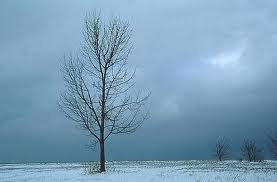
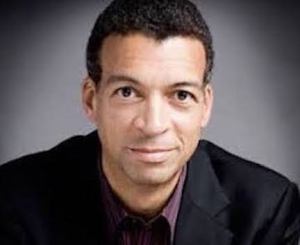
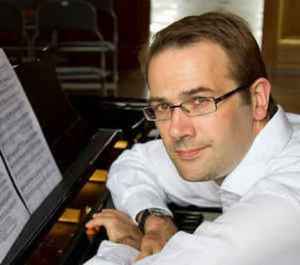
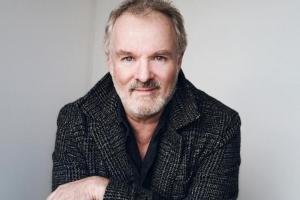


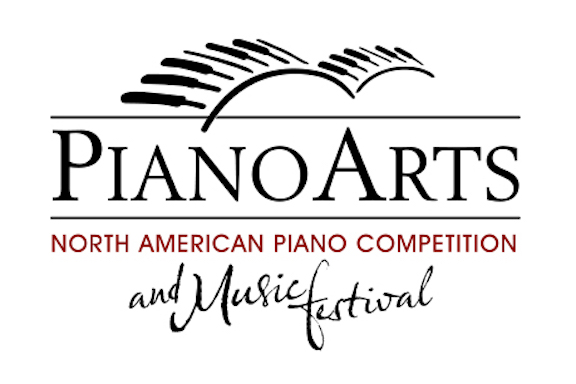
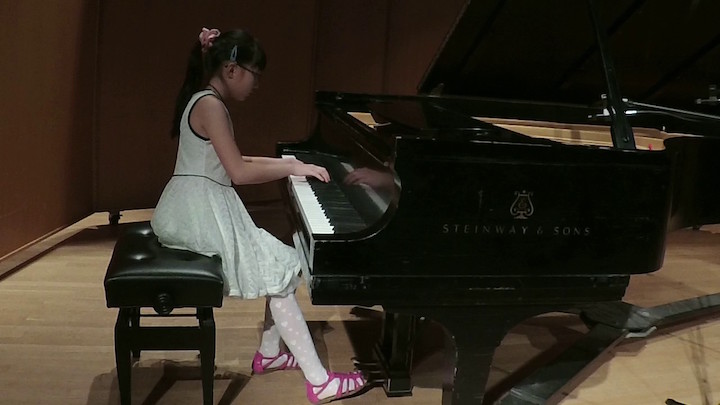




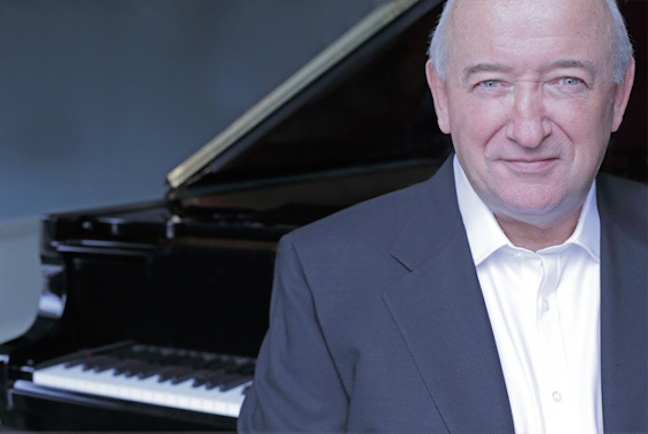





Songs by Black composers trace their cultural realities in a free online UW performance TONIGHT of “Verisimilitudes.” Plus, the five winners of this year’s Beethoven Competition perform Sunday.
Leave a Comment
PLEASE HELP THE EAR. IF YOU LIKE A CERTAIN BLOG POST, SPREAD THE WORD. FORWARD A LINK TO IT OR, SHARE IT or TAG IT (not just “Like” it) ON FACEBOOK. Performers can use the extra exposure to draw potential audience members to an event. And you might even attract new readers and subscribers to the blog.
ALERT: This Sunday, April 25, from 3:30 to 5:30 p.m. the five winners of this year’s Beethoven Competition at the UW-Madison will perform in a winners’ concert. Included in the program are the popular and dramatic “Appassionata” Sonata, Op. 57, and the famous and innovative last piano sonata, No. 32 in C minor, Op 111. Here is a link to the YouTube video: https://www.youtube.com/watch?v=eMF0Hd1MJwMg. Click on “Show More” and you can see the full programs and biographical profiles of the winners.
By Jacob Stockinger
The concert could hardly be more timely or the subject more relevant.
Think of the events in and near Minneapolis, Chicago and elsewhere in the U.S.; of the Black Lives Matter movement and social protest; of the political fight for D.C. statehood and voting rights – all provide a perfect context for an impressive student project that will debut online TONIGHT, Saturday, April 24, at 7 p.m.
The one-hour free concert “Verisimilitudes: A Journey Through Art Song in Black, Brown and Tan” originated at the UW-Madison’s Mead Witter School of Music. It seems an ideal way for listeners to turn to music and art for social and political commentary, and to understand the racial subtexts of art.
Soprano Quanda Dawnyell Johnson (below) created, chose and performs the cycle of songs by Black composers with other Black students at the UW-Madison.
Here is a link to the YouTube video: https://youtu.be/-g5hjeuSumw
Click on “Show More” to see the complete program and more information.
Here is the artist’s statement:
“Within the content of this concert are 17 art songs that depict the reality of the souls of a diasporic people. Most of the lyricists and all of the composers are of African descent. In large part they come from the U.S. but also extend to Great Britain, Guadeloupe by way of France, and Sierra Leone.
“They speak to the veracity of Black life and Black feeling. A diasporic African reality in a Classical mode that challenges while it embraces a Western European vernacular. It is using “culture” as an agent of resistance.
“I refer to verisimilitude in the plural. While syntactically incorrect, as it relates to the multiple veils of reality Black people must negotiate, it is very correct.
“To be packaged in Blackness, or should I say “non-whiteness” is to ever live in a world of spiraling modalities and twirling realities. To paraphrase the great artist, Romare Bearden, in “calling and recalling” — we turn and return, then turn again to find the place that is our self.
“I welcome you to… Verisimilitudes: A Journey Through Art Song in Black, Brown, and Tan”
Here, by sections, is the complete program and a list of performers:
I. Nascence
Clear Water — Nadine Shanti
A Child’s Grace — Coleridge-Taylor Perkinson
Night — Florence Price (below)
Big Lady Moon — Samuel Coleridge-Taylor
II. Awareness
Lovely, Dark, and Lonely — Harry T. Burleigh
Grief –William Grant Still (below)
Prayer — Leslie Adams
Interlude, The Creole Love Call — Duke Ellington
III. The Sophomore
Mae’s Rent Party, We Met By Chance –Jeraldine Saunders Herbison
The Barrier — Charles Brown
IV. Maturity
Three Dream Portraits: Minstrel Man, Dream Variation; I, Too — Margaret Bonds (below)
Dreams — Lawren Brianna Ware
Song Without Words — Charles Brown
Legacy
L’autre jour à l’ombrage (The Other Day in the Shade) — Joseph Boulogne (Chevalier de Saint-Georges, below)
The Verisimilitudes Team
Quanda Dawnyell Johnson — Soprano and Project Creator
Lawren Brianna Ware – -Pianist and Music Director
Rini Tarafder — Stage Manager
Akiwele Burayidi – Dancer
Jackson Neal – Dancer
Nathaniel Schmidt – Trumpet
Matthew Rodriguez – Clarinet
Craig Peaslee – Guitar
Aden Stier –Bass
Henry Ptacek – Drums
Dave Alcorn — Videographer
Here is a link to the complete program notes with lyrics and composer bios. And a preview audio sample is in the YouTube video at the bottom: https://simplebooklet.com/verisimilitudesprogramnotes#page=1
Share this:
Tags: #Americanhistory, #AppassionataSonata, #ArtSong, #BeethovenCompetition, #BeethovenPianoSonatas, #Blackcomposers, #BlackCulture, #BlackHistory, #Blacklife, #BlackLivesMatter, #BlackMusic, #BlackMusician, #BlogPost, #BlogPosting, #CentralTime, #ChamberMusic, #CharlesBrown, #ChevalierdeSaint-Georges, #ChicagoIllinois, #Coleridge-TaylorPerkinson, #CoronavirusPandemic, #DukeElington, #DukeEllington, #FacebookPost, #FacebookPosting, #FlorencePrice, #GreatBritain, #HarryT.Burleigh, #IrvingShain, #JacobStockinger, #JeraldineSaundersHerbison, #JosephBoulogne, #LawrenBriannaWare, #LeslieAdams, #LosAngelesGuitarQuartet, #LudwigVanBeethoven, #MargaretBonds, #MeadWitterSchoolofMusic, #MinneapolisMinnesota, #MusicDirector, #NadineShanti, #OnlineConcert, #PoliticalProtest, #ProgreamNotes, #QuandaJohnson, #RomareBearden, #SamuelColeridge-Taylor, #SierreLeone, #SingWithoutWords, #SocialProtest, #SongCycle, #SopranoSinger, #StageDirector, #TheEar, #TheU.S., #TheUK, #TheUW, #UnitedStates, #UniversityofWisconsin-Madison, #VirtualConcert, #VocalMusic, #VotingRights, #WashingtonD.C., #WesternEuropean, #WilliamGrantStill, #YouTubeChannel, #YouTubevideo, African, agent, America, Appassionata Sonata, Art, art song, Arts, audience, barrier, bass, bassist, Beethoven, Beethoven Competition, big, biography, black, Black composers, Black culture, Black life, Black Lives Matter, black music, Blackness, blog, bonds, brown, call, Central Daylight Time, Central Time, Chamber music, chance, Charles Brown, Chevalier de Saint Georges, Chicago, Child, choose, clarinet, clarinetist, Classical music, Coleridge-Taylor, Coleridge-Taylor Perkinson, commentary, Competition, complete, composer, Concert, content, context, coronavirus, correct, Creole, culture, cycle, D.C., dance, dancer, dark, day, debut, depict, descent, diaspora, dramatic, dream, Dreams, drummer, drums, Ellington, Europe, Facebook, Facebook post, Facebook posting, famous, feeling, Florence Price, forward, France, free, grace, Great Britain, Guadeloupe, guitarist, Harry T. Burleigh, History, hour, ideal, impressive, information, interlude, Irving Shain, Jacob Stockinger, Jeraldine Saunders Herbison, Joseph Boulogne, journey, journeyt, lady, Lauren Brianna Ware, legacy, Leslie Adams, life, like, link, live, Love, lovely, Ludwig van Beethoven, lyricist, lyrics, Madison, man, Margaret Bonds, maturity, Mead Witter School of Music, Minneapolis, minstrel, modality, mode, moon, multiple, Music, Music director, Musician, Nadine Shanti, nascence, night, online, originate, other, package, pandemic, party, People, percussion, perfect, perform, performer, Pianist, Piano, Piano sonata, plural, political protest, popular, portrait, post, posting, prayer, preview, price, program, program notes, project, Quanda Johnson, racial, read, reality, recall, recital, Rent, resistance, right, Romare Bearden, sample, Samuel Coleridge-Taylor, shade, share, show, Sierra Leone, singer, Singing, social protest, Sonata, song, song cycle, Song Without Words, sophomore, soprano, soul, speak, spiral, stage director, statehood, statement, Still, students, subtext, syntax, tag, Tan, team, The Ear, tonight, Trumpet, trumpeter, U.S., UK, understand, United States, University of Wisconsin-Madison School of Music, University of Wisconsin–Madison, UW, UW-Madison, veil, veracity, verisimilitude, vernacular, videographer, virtual, vocal music, voting, voting rights, Washington, water, way, Western European, whiteness, William Grant Still, winner, Wisconsin, year, YouTube, YouTube video